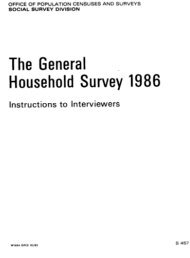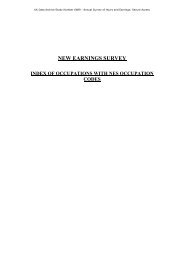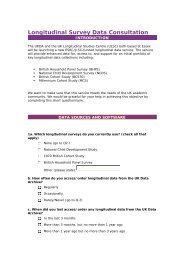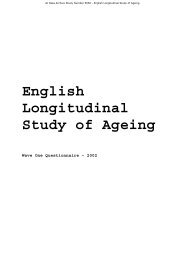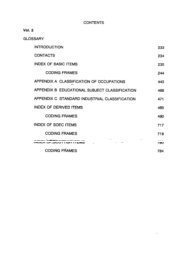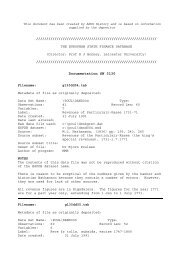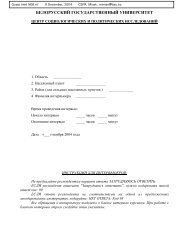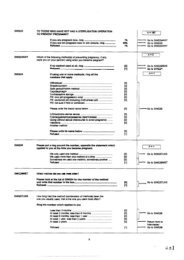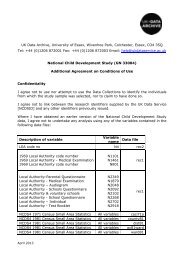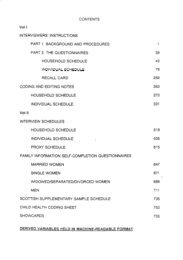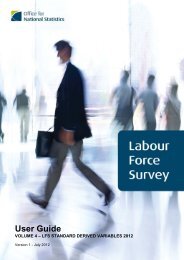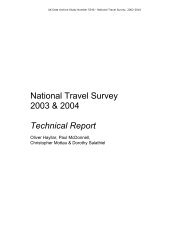The Seven Principles of Public Life - ESDS
The Seven Principles of Public Life - ESDS
The Seven Principles of Public Life - ESDS
You also want an ePaper? Increase the reach of your titles
YUMPU automatically turns print PDFs into web optimized ePapers that Google loves.
Table 2 Which <strong>of</strong> these pr<strong>of</strong>essions would you generally trust to tell the truth?<br />
Base: All respondents (1,097)<br />
Note: <strong>Public</strong> <strong>of</strong>fice holders covered in this research are shown in italics Generally trusted to<br />
tell the truth?<br />
Yes<br />
No<br />
Net<br />
trust*<br />
% % %<br />
Family doctors 92 7 +85<br />
Head teachers in schools 84 12 +72<br />
Judges 80 16 +65<br />
Local police <strong>of</strong>ficers on the beat in your area 77 17 +60<br />
Senior police <strong>of</strong>ficers 68 26 +42<br />
Television news journalists 49 46 +3<br />
Your local MP 47 45 +2<br />
Senior managers in the National Health Service 44 49 -5<br />
Local councillors 41 52 -11<br />
Top civil servants 37 53 -16<br />
Journalists on newspapers like the Times, Telegraph or Guardian 38 56 -18<br />
Senior managers in local councils 35 56 -21<br />
MPs in general 27 67 -40<br />
People who run large companies 24 68 -43<br />
Government ministers 24 70 -46<br />
Estate agents 20 75 -55<br />
Journalists on newspapers like the Sun, the Mirror or the Daily Star 7 89 -83<br />
* Net trust = % who would trust the pr<strong>of</strong>ession to tell the truth minus the % who<br />
would not trust the pr<strong>of</strong>ession to tell the truth<br />
(Table 19)<br />
<strong>The</strong> extent to which the general public trusts different pr<strong>of</strong>essions to tell the truth varies<br />
very considerably between pr<strong>of</strong>essions. Among the 17 pr<strong>of</strong>essions asked about, family<br />
doctors were the most widely trusted, 92 per cent <strong>of</strong> respondents saying that they would<br />
trust them to tell the truth. Also among the most trusted pr<strong>of</strong>essions were head teachers,<br />
judges and local police <strong>of</strong>ficers in the respondent’s own area, each <strong>of</strong> which were trusted by<br />
more than 75 per cent <strong>of</strong> respondents.<br />
Among the least widely trusted pr<strong>of</strong>essions were heads <strong>of</strong> large companies and government<br />
ministers, each trusted by 24 per cent <strong>of</strong> respondents, and estate agents, by 20 per cent.<br />
Tabloid journalists were trusted least <strong>of</strong> all the pr<strong>of</strong>essions, only seven per cent <strong>of</strong><br />
respondents saying that they trusted journalists on newspapers like the Sun, the Mirror and<br />
the Daily Star. Even among respondents who read tabloid newspapers during the week,<br />
only ten per cent said that they trusted the journalists on those newspapers to tell the truth.<br />
This lack <strong>of</strong> trust might be seen as a reason for tabloid readers to give little credence to<br />
what they read in the tabloid press. However, as we saw in Chapter 1, the printed media<br />
34 BMRB International Report: Survey <strong>of</strong> public attitudes towards conduct in public life



